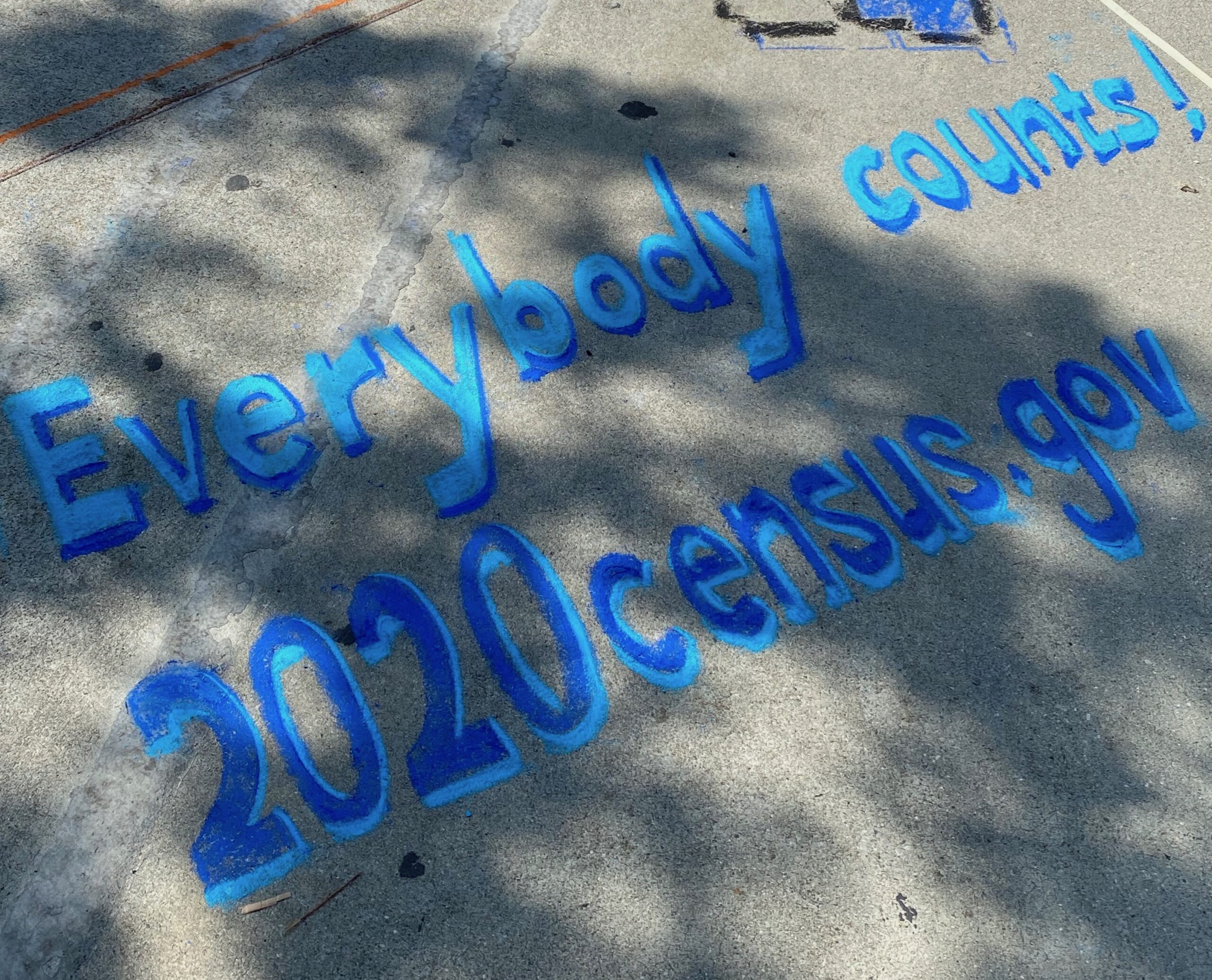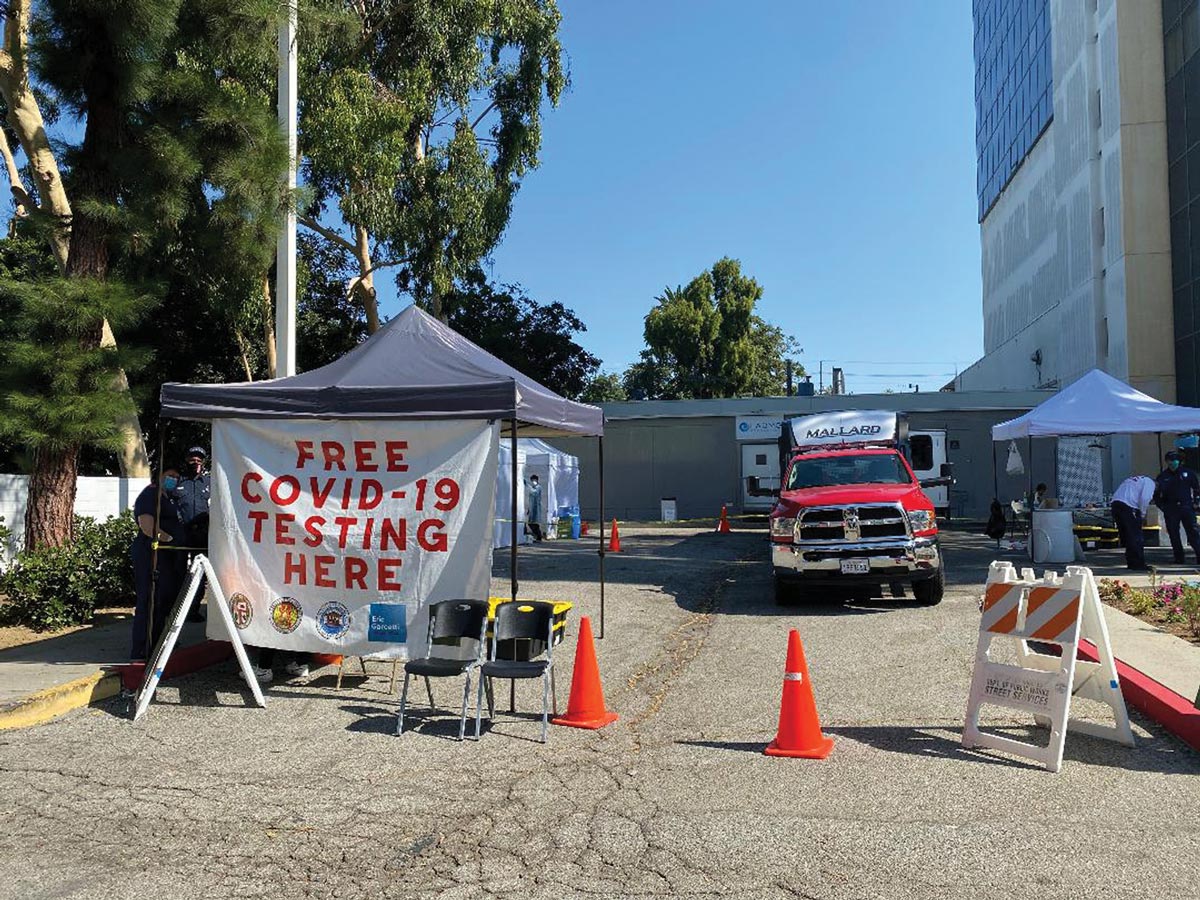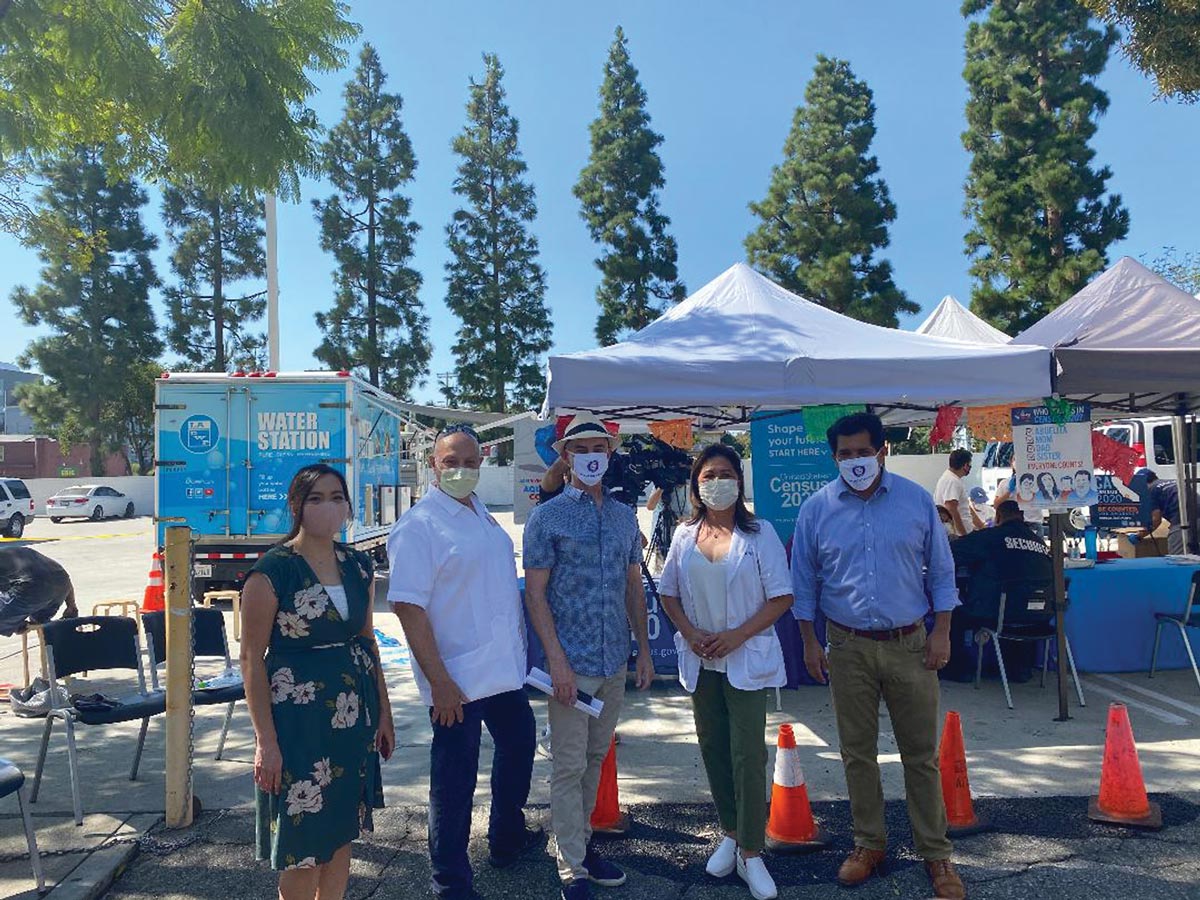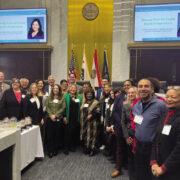
HISTORIC Filipinotown in Los Angeles has experienced a disproportionately high rate of COVID-19 infections, yet when it comes to responding to the 2020 Census, the neighborhood’s response rate remains low.
To tackle the two issues at hand, a pop-up event was held at the LA Downtown Medical Center — a Fil-Am co-owned hospital along West Temple Street — on Saturday, September 5 so community members could be tested and get in-language assistance to fill out the census.

“It was so intentional for the city and for all of our partners to make sure that we combine these two events…It’s something that’s really a priority for us to make sure our immigrant communities know that these resources are available in their neighborhood and that they can access them right outside their doorstep,” said LA Board of Public Works Commissioner Jessica Caloza, who spearheaded this event.
The Office of the Mayor, Councilmember Mitch O’Farrell of the 13th District, the Census 2020 Initiative and the county Office of Education, also participated in Saturday’s event, which included census giveaways, an ice cream truck and a chalk art display.
“It’s always good to partner up with the city of LA. I think that is a good unifying even with the hospital that’s in the heart of LA and the community that we serve. The community that we serve really deserves the best health care…,” said Vicki Rollins, the Filipina American co-owner of LA Downtown Medical Center, which is one of two hospitals in LA that has a five-star rating from the Centers for Medicare & Medicaid Services.
She added, “Our Filipino community really needs a catalyst to really bring them out and educate them on the importance of the census…because at the end of the day, it goes back to them.”

The U.S. Census Bureau is ending all counting efforts, which include door-knocking, phone banking and other digital outreach, on Sept. 30, a month earlier than previously planned.
The decennial count, which can be completed by mail, on the phone, or online, guides how federal agencies distribute more than $675 billion in funds each year. For every non-response, the community risks losing out on $1,000 per person annually over the next 10 years.
“Those are taxpayer dollars on the table that we really need to get back to our communities to make sure that our hospitals, our schools, our parks, and our roads get the resources they need, not just because this happens every 10 years, but especially this year when we’re in the middle of a pandemic, in the middle of a heatwave, and so many other extreme weather conditions [where] we need valuable resources,” Caloza said.
LA County continues to be the hardest-to-count region in the United States and COVID-19 has made in-person collection efforts more difficult, especially for communities of color, which have traditionally could have been reached at local gathering places, such as markets or places of worship.
Even before the pandemic, certain communities have already been hesitant to fill out the census as there was debate around adding a citizenship question. However, the final questionnaire does not ask respondents for their status.
“It’s been a constant battle to make sure that people who are undocumented fill it out.
Here’s the thing: they don’t ask the citizenship question. They don’t ask your status. Fill it out. It’s completely confidential, secure and they don’t need to worry about their safety,” said Rep. Jimmy Gomez, who represents the state’s 34th congressional district, which covers Historic Filipinotown.
Another component of the census data is how many congressional seats each state gets, which is important for political representation.
“Right now, if we don’t get our numbers up, we might lose one to two congressional seats.
That means we have less political power as a state, less political power as minority communities, less political power as Los Angeles” Gomez said. “So it does make a difference. The more people you have, the better the chances you are getting what you need for your community.”
As of this writing, Historic Filipinotown has 412 positive cases of COVID-19, according to the LA County Department of Public Health.




